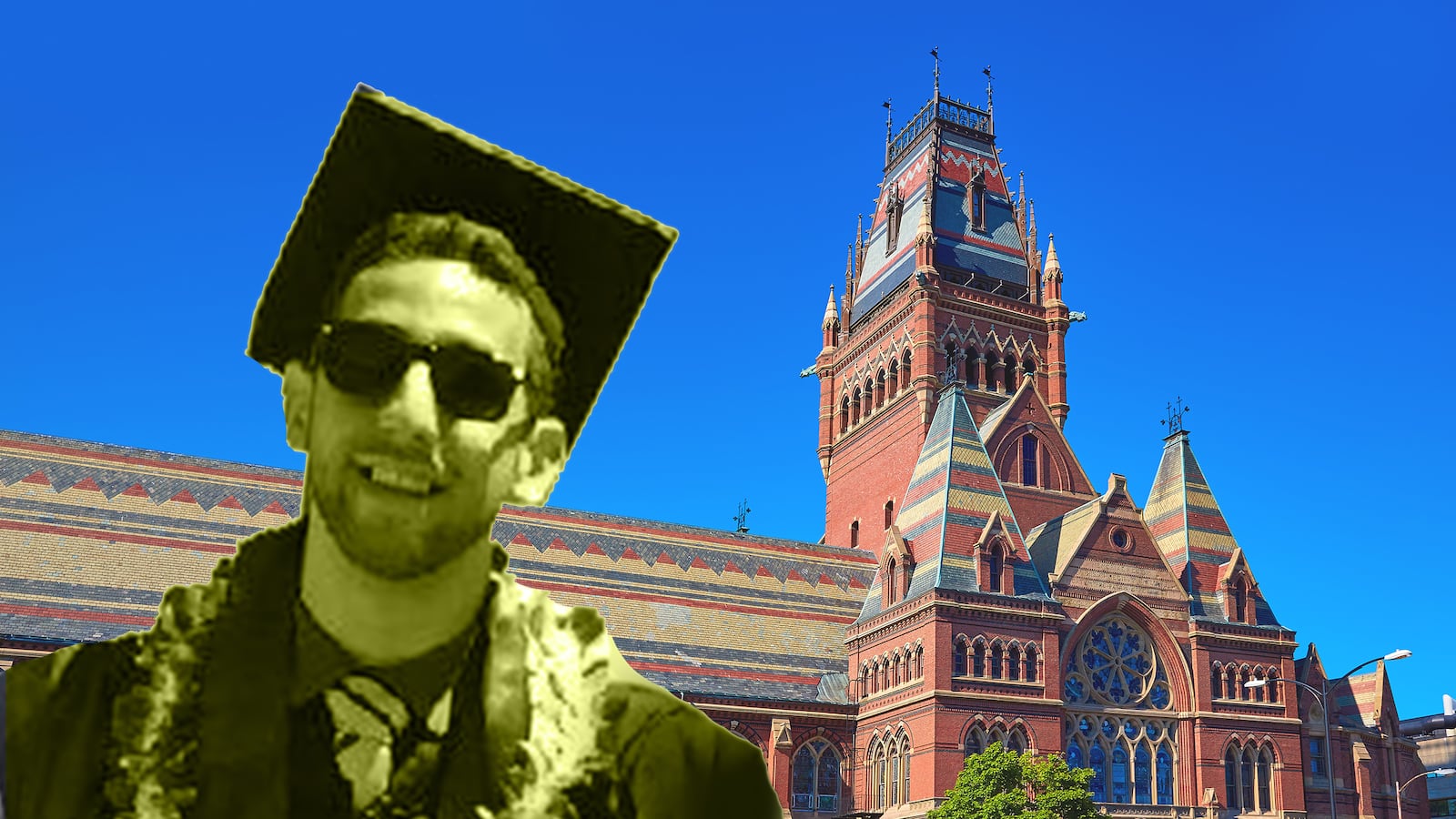Was a Harvard Law School student’s remark to a “smelly” visiting Israeli dignitary anti-Semitic—or simply bizarre?
A small group of Jewish students and recent alumni have signed a letter defending Husam El-Qoulaq, a third-year Palestinian law student, echoing his anonymous apology: He did not intend to employ an anti-Semitic stereotype when, during a public panel on Palestinian-Israeli relations this month, he asked former Israeli foreign minister Tzipi Livni, “How are you so smelly?...she’s very smelly, and I was just wondering.”
El-Qoulaq’s remarks have been condemned by Law School Dean Martha L. Minow, the Jewish Law Students Association, and other Jewish-affiliated groups around the country, and Israeli newspapers like the The Jerusalem Post.
In an email to Harvard Law School affiliates, Minow denounced the comment as “offensive” and “an embarrassment to this institution,” noting that “many perceive it as anti-Semitic, and no one would see it as appropriate.”
When The Harvard Law Record first reported on the incident, it did not name El-Qoulaq and redacted comments identifying him.
School administrators also initially declined to name him, citing federal privacy laws. They also cut his remarks from an online video of the event, inciting accusations of censorship.
After online commenters repeatedly referred to him by name, El-Qoulaq granted The Record permission to publish his identity. He did not respond to a request for comment from The Daily Beast by press time.
The incident has raised larger questions in the Harvard Law School community about what distinguishes hate speech from free speech. In this case, even those who roll their eyes at El-Qoulaq’s insistence that he didn’t intend to invoke a derogatory stereotype think the administration was right not to punish him for it.
“I think what he said was clearly offensive, and he has no right to make a statement in public and have his name remain confidential,” Charles Fried, Beneficial Professor of Law at HLS, told The Daily Beast. “But I’m glad he’s not being disciplined because that would make us look like Erdogan,” he added, referring to the former prime minister of Turkey, where speech is not protected under law.
Fried cited speech declaring homosexuality immoral as an example of offensive but protected speech. “You might call it hate speech, but in the United States it’s a point of view,” he said.
Those who signed the letter defending El-Qoulaq noted Livni’s controversial history and “key role in Operation Cast Lead, a 23-day military operation that was condemned by the U.N. and other credible organizations for the brutality it visited upon Palestinian civilians.”
They also insisted that while Husam has participated in protests regarding the Israeli-Palestinian conflict, they “reject the charge that our friend is an anti-Semite.” At a previous event this semester, they said he called a Palestinian speaker a “smelly liar.”
While Husam’s insistence that he didn’t intend to offend has been accepted by some people in the community—that had he known “some listeners might interpret my comments as anti-Semitic, there is absolutely no chance that I would have uttered them”—we’ve seen similar incidents on campuses where declared intent has been disregarded.
Last semester at Claremont McKenna College in California, Assistant Vice President and Dean of Students Mary Spellman was effectively forced to resign over an email students declared racially insensitive.
The email was addressed to a student who had expressed frustrations about being a minority on campus, with Spellman stressing that the students’ concerns “are important to me and the DOS staff and we are working on how we can better serve students, especially those that don’t fit our CMC mold.”
One student went on hunger strike in protest of those last words in her email, refusing to eat even after Spellman apologized repeatedly for her “poorly worded email that was intended to support a student.”
The relatively temperate response to El-Qoulaq’s remarks suggest that perceived racism may be more tolerated when the race it targets is believed to be less oppressed than others.





